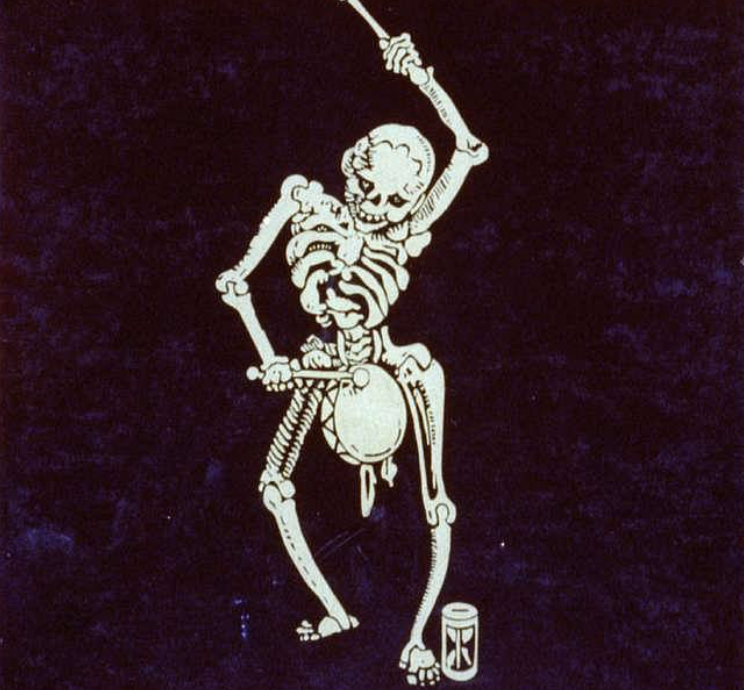A Journey into the Ultimate Bargain with the Devil
Would you trade your eternal soul for 24 years of unlimited knowledge and power? This is the bargain at the heart of Christopher Marlowe’s masterpiece “Doctor Faustus,” a play that has haunted audiences for over 400 years. In an age of technological promises and moral compromises, Marlowe’s exploration of ambition, knowledge, and damnation feels more relevant than ever.
Quick Facts
- First performed: 1592 by the Admiral’s Men at the Rose Theatre, London
- Written by: Christopher Marlowe, Shakespeare’s most talented contemporary
- Original source: The German Faustbuch (1587)
- Runtime: Approximately 2 hours
- Structure: Five acts with comic interludes
- Notable adaptations: Goethe’s Faust, Thomas Mann’s Doctor Faustus, countless operas and films
Just want to read the play?

Revels Student Edition
The A- and B- texts (1604, 1616) are printed in parallel, which really helps track changes and differences in the play’s textual history.
Norton Critical Edition
This edition provides newly edited texts of both the 1604 (A-Text) and 1616 (B-Text) versions of the play, each with detailed explanatory annotations.

Methuen Drama – New Mermaids Edition
Includes a detailed plot summary and annotations throughout the text, an annotated bibliography and suggestions for further reading.

2011 Globe Theatre production on DVD
Matthew Dunster’s production features Paul Hilton as the arrogant, power-hungry Faustus and Arthur Darvill as the sardonic Mephistopheles
Free version? Try the version on Project Gutenberg: https://www.gutenberg.org/files/779/779-h/779-h.htm
Historical Context
Doctor Faustus emerged during the intellectual ferment of the English Renaissance, a time when the medieval world was giving way to modern thinking. Marlowe wrote during the reign of Elizabeth I, an era of religious tension between Protestantism and Catholicism. The play reflects Renaissance humanism’s hunger for knowledge while grappling with Christian warnings about pride and forbidden wisdom.
The character of Faustus embodies the Renaissance ideal of the “overreacher” – someone who stretches beyond accepted human limitations. Marlowe himself was a controversial figure: a spy, possible atheist, and eventual murder victim, whose own life seemed to mirror Faustus’s dangerous pursuits.
Plot Overview
John Faustus, a brilliant scholar who has mastered every field of human knowledge, turns to black magic seeking greater power and understanding. He summons Mephistopheles, a devil, and agrees to trade his soul for 24 years of magical powers and forbidden knowledge.
What follows is both spectacular and tragic. Faustus travels the world, performs magic for emperors, and summons figures from history. Yet he squanders his powers on increasingly trivial pursuits. Despite repeated chances to repent, Faustus remains trapped between his desire for salvation and his inability to truly regret his pact with Lucifer. The play culminates in one of theatre’s most horrifying scenes, as Faustus faces his final damnation.
Themes & Analysis
The Limits of Knowledge
Faustus begins the play by rejecting traditional fields of study – logic, medicine, law, and theology – as too limiting. His pursuit of knowledge beyond human boundaries raises questions that still resonate: Should there be limits to scientific inquiry? What price are we willing to pay for advancement?
Pride and Damnation
Faustus’s tragic flaw is his overwhelming pride. He believes himself worthy of supernatural power and knowledge. The play suggests that this hubris, more than his actual deal with the devil, leads to his damnation. His inability to accept grace and forgiveness stems from his inability to humble himself.
Free Will vs. Predestination
The play engages with one of the central religious debates of Marlowe’s time: Can Faustus be saved? The text presents contradictory evidence. While Faustus claims “the stars have made me damned,” his own choices repeatedly reject chances for redemption.
Revolutionary Elements
Doctor Faustus revolutionized English theatre in several ways:
- It introduced tragic psychology, showing Faustus’s internal struggles through powerful soliloquies
- It mixed high tragedy with low comedy, creating a template for later Renaissance drama
- It brought spectacular stage effects to public theatre
- It challenged religious orthodoxy while maintaining plausible deniability
Cultural Impact
The impact of Doctor Faustus extends far beyond theatre:
- It established the “Faustian bargain” as a central literary theme
- It influenced countless works about deals with the devil
- Its questions about the limits of science and knowledge remain relevant
- Its portrayal of inner torment influenced psychological drama
Reading Guide
Best Editions
- David Bevington and Eric Rasmussen (Manchester University Press) – most comprehensive
- David Scott Kastan (Norton) – best scholarly apparatus
- Roma Gill (Oxford) – most accessible for general readers
Reading Tips
- Pay attention to the varying tones between tragic and comic scenes
- Notice how Faustus’s character changes over the 24 years
- Watch for biblical allusions and religious imagery
- Consider the role of the Good and Evil Angels as psychological representations
Contemporary Relevance
Doctor Faustus speaks powerfully to modern concerns:
- The ethical limits of scientific and technological advancement
- The price of ambition and success
- The conflict between secular knowledge and religious faith
- The psychology of addiction and self-destruction
Fun Facts & Trivia
- Legend has it that real devils appeared during early performances
- The play was continuously revised and rewritten by other authors
- Marlowe was killed in a tavern brawl before the play was published
- Two significantly different versions of the text exist (A and B texts)
- The play was considered dangerous to perform due to its depiction of devils and magic
Why This Play Endures
Doctor Faustus remains powerful because it addresses fundamental human desires: the wish for knowledge, power, and transcendence of human limitations. Its psychological insight, spectacular elements, and poetic language continue to captivate audiences. The play’s central question – what would you trade your soul for? – remains as provocative as ever.
Additional Resources
- The Marlowe Society’s extensive online archives
- David Wootton’s “The Invention of Science” for historical context
- Park Honan’s biography “Christopher Marlowe: Poet & Spy”
- Various film adaptations, including Richard Burton’s 1967 version
Discussion Questions
- Is Faustus truly damned from the moment he makes his pact, or does he have genuine chances to repent?
- How does the play’s mixture of comedy and tragedy affect its overall impact?
- What modern “Faustian bargains” can we identify in contemporary society?
- How does Marlowe’s treatment of religion reflect Renaissance attitudes toward faith and knowledge?
The enduring power of Doctor Faustus lies in its ability to speak to each new generation’s anxieties about knowledge, power, and the price of ambition. In our own age of rapid technological advancement and moral uncertainty, Marlowe’s masterpiece remains startlingly relevant, warning us about the dangers of unbridled ambition while acknowledging the deep human desire to transcend our limitations.


